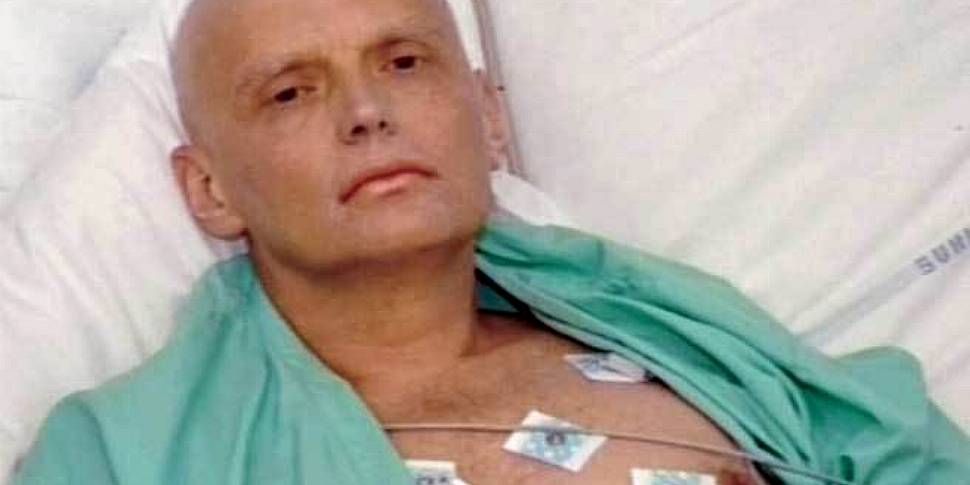The widow of poisoned spy Alexander Litvinenko has broken down while recalling the last words he spoke to her before he died.
Marina Litvinenko has been giving evidence at the public inquiry into the death of her husband, who died nearly three weeks after drinking tea laced with polonium-210 at a London hotel in 2006.
Mrs Litvinenko said that, as she left his hospital bed the day before he died, she looked back as he "smiled so sadly".
"I just said 'don't worry, tomorrow morning, I will come back'," she said.
"He said 'I love you so much'."
She added: "It was his last words that I heard."
She said in his final days Mr Litvinenko lay mostly "speechless" with pain all over his body.
Before he was admitted to hospital, he fell ill a number of times, vomiting and complaining of "feeling weak", she told the inquiry.
At first, they had blamed a spicy chicken dinner he had eaten but it soon became clear that something else was wrong.
Suspects
Mr Litvinenko, a former Russian spy who also worked for British intelligence services during his time in the UK, died on 23 November 2006, almost three weeks after drinking tea laced with polonium-210 at the Millennium Hotel in London's Grosvenor Square.
Two men - former KGB bodyguard-turned-politician Andrei Lugovoi and Dmitri Kovtun - were named as the main suspects in 2007. Both deny any involvement and remain in Russia.
Mr Litvinenko was taken to Barnet Hospital by ambulance on 3 November 2006.
Mrs Litvinenko said the 43-year-old's hair was falling out as she ran her fingers across his head and that the hospital staff realised his immune system was failing, although nobody could tell them why.
He was later moved to University College Hospital and converted to Islam just a few days before his death, so he could be buried in Chechen soil - a move that his father responded to by saying: "Doesn't matter, at least you're not communist".
Mr Litvinenko signed a statement on his death bed written for him by his friend and solicitor, in which he blamed Mr Putin for his death, his widow told the inquiry.
He had published two books - Blowing Up Russia and The Lubyanka Gang - in which he claimed Vladimir Putin had links to St Petersburg mafia and that Mr Putin and the security forces were behind the apartment bombings of 1999.
The bombings, which killed almost 300 people, were to give Mr Putin an excuse for a second Chechen war and to help him win the presidency, Mr Litvinenko said.









